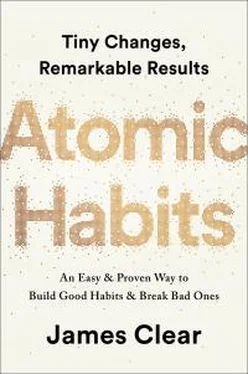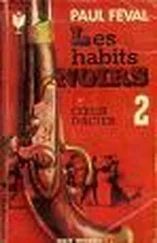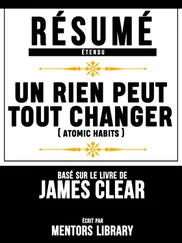Pick the right habit and progress is easy. Pick the wrong habit and life is a struggle.
How do you pick the right habit? The first step is something we covered in the 3rd Law: make it easy . In many cases, when people pick the wrong habit, it simply means they picked a habit that was too difficult. When a habit is easy, you are more likely to be successful. When you are successful, you are more likely to feel satisfied. However, there is another level to consider. In the long-run, if you continue to advance and improve, any area can become challenging. At some point, you need to make sure you’re playing the right game for your skillset. How do you figure that out?
The most common approach is trial and error. Of course, there’s a problem with this strategy: life is short. You don’t have time to try every career, date every eligible bachelor, or play every musical instrument. Thankfully, there is an effective way to manage this conundrum, and it is known as the explore/exploit trade-off .
In the beginning of a new activity, there should be a period of exploration. In relationships, it’s called dating. In college, it’s called the liberal arts. In business, it’s called split testing. The goal is to try out many possibilities, research a broad range of ideas, and cast a wide net.
After this initial period of exploration, shift your focus to the best solution you’ve found—but keep experimenting occasionally. The proper balance depends on whether you’re winning or losing. If you are currently winning, you exploit, exploit, exploit. If you are currently losing, you continue to explore, explore, explore.
In the long-run it is probably most effective to work on the strategy that seems to deliver the best results about 80 to 90 percent of the time and keep exploring with the remaining 10 to 20 percent. Google famously asks employees to spend 80 percent of the workweek on their official job and 20 percent on projects of their choice, which has led to the creation of blockbuster products like AdWords and Gmail.
The optimal approach also depends on how much time you have. If you have a lot of time—like someone at the beginning of their career—it makes more sense to explore because once you find the right thing, you still have a good amount of time to exploit it. If you’re pressed for time—say, as you come up on the deadline for a project—you should implement the best solution you’ve found so far and get some results.
As you explore different options, there are a series of questions you can ask yourself to continually narrow in on the habits and areas that will be most satisfying to you:
What feels like fun to me, but work to others?The mark of whether you are made for a task is not whether you love it but whether you can handle the pain of the task easier than most people. When are you enjoying yourself while other people are complaining? The work that hurts you less than it hurts others is the work you were made to do.
What makes me lose track of time?Flow is the mental state you enter when you are so focused on the task at hand that the rest of the world fades away. This blend of happiness and peak performance is what athletes and performers experience when they are “in the zone.” It is nearly impossible to experience a flow state and not find the task satisfying at least to some degree.
Where do I get greater returns than the average person?We are continually comparing ourselves to those around us, and a behavior is more likely to be satisfying when the comparison is in our favor. When I started writing at jamesclear.com, my email list grew very quickly. I wasn’t quite sure what I was doing well, but I knew that results seemed to be coming faster for me than for some of my colleagues, which motivated me to keep writing.
What comes naturally to me?For just a moment, ignore what you have been taught. Ignore what society has told you. Ignore what others expect of you. Look inside yourself and ask, “What feels natural to me? When have I felt alive? When have I felt like the real me?” No internal judgments or people-pleasing. No second-guessing or self-criticism. Just feelings of engagement and enjoyment. Whenever you feel authentic and genuine, you are headed in the right direction.
To be honest, some of this process is just luck. Michael Phelps and Hicham El Guerrouj were lucky to be born with a rare set of abilities that are highly valued by society and to be placed in the ideal environment for those abilities. We all have limited time on this planet, and the truly great among us are the ones who not only work hard but also have the good fortune to be exposed to opportunities that favor us.
But what if you don’t want to leave it up to luck?
If you can’t find a game where the odds are stacked in your favor, create one. Scott Adams, the cartoonist behind Dilbert , says, “Everyone has at least a few areas in which they could be in the top 25% with some effort. In my case, I can draw better than most people, but I’m hardly an artist. And I’m not any funnier than the average standup comedian who never makes it big, but I’m funnier than most people. The magic is that few people can draw well and write jokes. It’s the combination of the two that makes what I do so rare. And when you add in my business background, suddenly I had a topic that few cartoonists could hope to understand without living it.”
When you can’t win by being better, you can win by being different. By combining your skills, you reduce the level of competition, which makes it easier to stand out. You can shortcut the need for a genetic advantage (or for years of practice) by rewriting the rules. A good player works hard to win the game everyone else is playing. A great player creates a new game that favors their strengths and avoids their weaknesses.
In college, I designed my own major, biomechanics, which was a combination of physics, chemistry, biology, and anatomy. I wasn’t smart enough to stand out among the top physics or biology majors, so I created my own game. And because it suited me—I was only taking the courses I was interested in—studying felt like less of a chore. It was also easier to avoid the trap of comparing myself to everyone else. After all, nobody else was taking the same combination of classes, so who could say if they were better or worse?
Specialization is a powerful way to overcome the “accident” of bad genetics. The more you master a specific skill, the harder it becomes for others to compete with you. Many bodybuilders are stronger than the average arm wrestler, but even a massive bodybuilder may lose at arm wrestling because the arm wrestling champ has very specific strength. Even if you’re not the most naturally gifted, you can often win by being the best in a very narrow category.
Boiling water will soften a potato but harden an egg. You can’t control whether you’re a potato or an egg, but you can decide to play a game where it’s better to be hard or soft. If you can find a more favorable environment, you can transform the situation from one where the odds are against you to one where they are in your favor.
HOW TO GET THE MOST OUT OF YOUR GENES
Our genes do not eliminate the need for hard work. They clarify it. They tell us what to work hard on. Once we realize our strengths, we know where to spend our time and energy. We know which types of opportunities to look for and which types of challenges to avoid. The better we understand our nature, the better our strategy can be.
Biological differences matter. Even so, it’s more productive to focus on whether you are fulfilling your own potential than comparing yourself to someone else. The fact that you have a natural limit to any specific ability has nothing to do with whether you are reaching the ceiling of your capabilities. People get so caught up in the fact that they have limits that they rarely exert the effort required to get close to them.
Читать дальше




![Джеймс Клир - Атомные привычки [Как приобрести хорошие привычки и избавиться от плохих]](/books/403243/dzhejms-klir-atomnye-privychki-kak-priobresti-horosh-thumb.webp)



